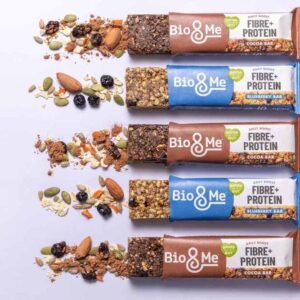Food manufacturers falling short on plant-based demand, says FAIRR Report

A new report from the FAIRR investor network has revealed that global food manufacturers are missing a critical opportunity to meet rising consumer demand for plant-based proteins — undermining both category growth and long-term supply chain resilience.
The report, Feeding Change: Building a Resilient Food System Through Protein Diversification, analyses the strategies of 20 major food retailers and manufacturers, backed by a US$11.5 trillion investor engagement. Despite growing interest in health, sustainability, and dietary shifts, the findings show that most companies are underprepared to capitalise on the plant-based movement.
Key findings for food manufacturers
Nutrition strategy gaps: While 70% of companies recognise health and wellness as material issues, only 25% have a formal health strategy, and just 30% have nutrition expertise at board level.
Innovation lag: 77% of companies cite performance, affordability, or nutritional concerns as barriers to plant-based uptake — yet only 40% are actively innovating to overcome them.
Risk blind spots: just 40% have assessed the financial risks of dietary shifts or climate impacts on animal agriculture supply chains.
Wholefood neglect: despite rising demand for fresh, minimally processed foods, only three of eight brand manufacturers launched a plant-based wholefood product in the past year.
FAIRR warns that over-reliance on animal protein leaves companies exposed to climate volatility, supply chain disruption, and shifting consumer expectations. The report urges manufacturers to diversify protein sources — not only to mitigate risk, but to unlock growth and improve public health outcomes.
Retailers leading the way
Some retailers are already responding. Carrefour surpassed its €500 million plant-based sales target two years early and has raised its goal to €650 million. Ahold Delhaize expanded its ambition for all European banners to reach 50% plant-based protein sales by 2030.
The missed sustainability opportunity
Despite mounting pressure, 75% of companies have yet to recognise the full sustainability and nutrition potential of substituting animal ingredients with plant-based options. Nestlé stands alone in quantifying the emissions mitigation opportunity.
For food manufacturers, consumer demand is evolving, and the window to lead on plant-based innovation is closing. Those who fail to act risk falling behind in a market increasingly shaped by health, climate, and resilience.






